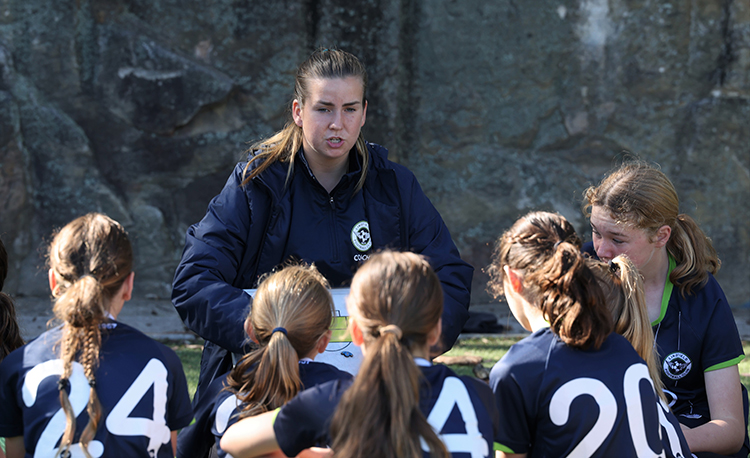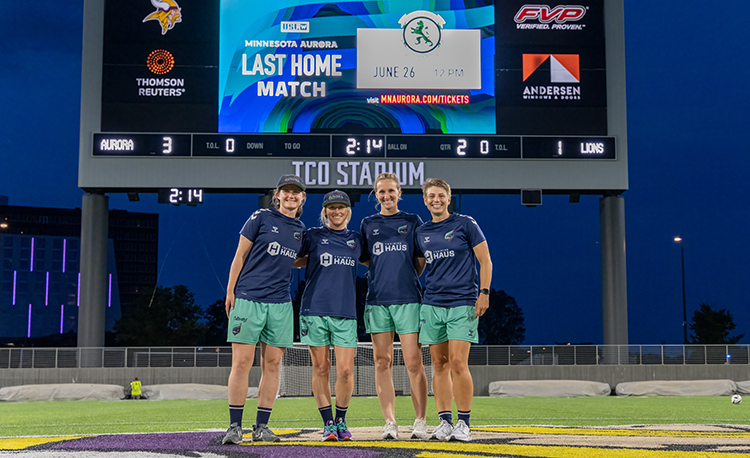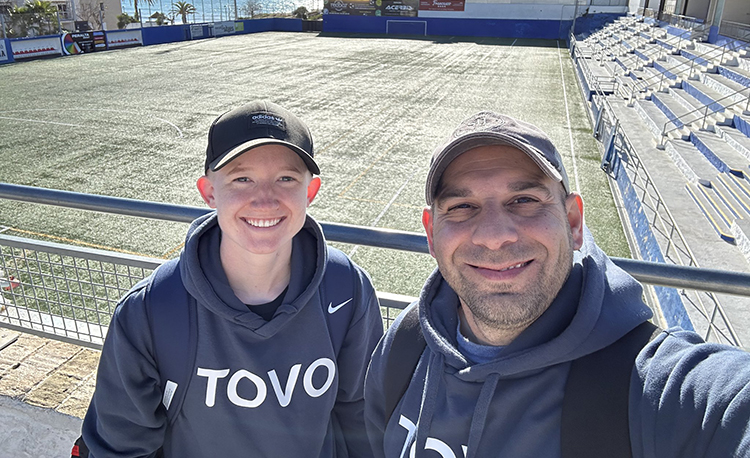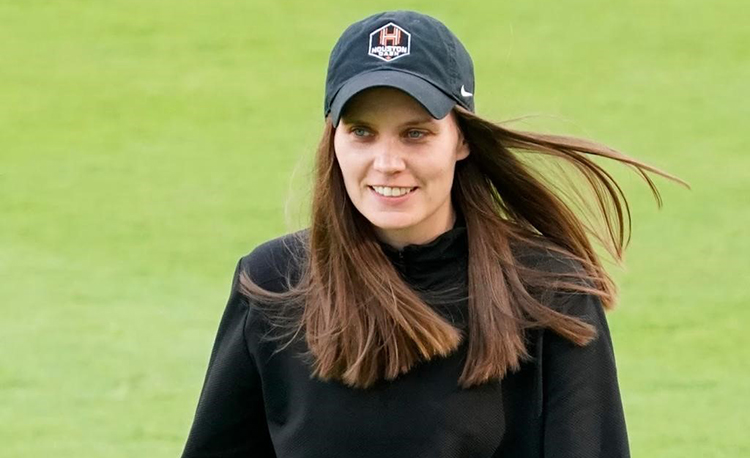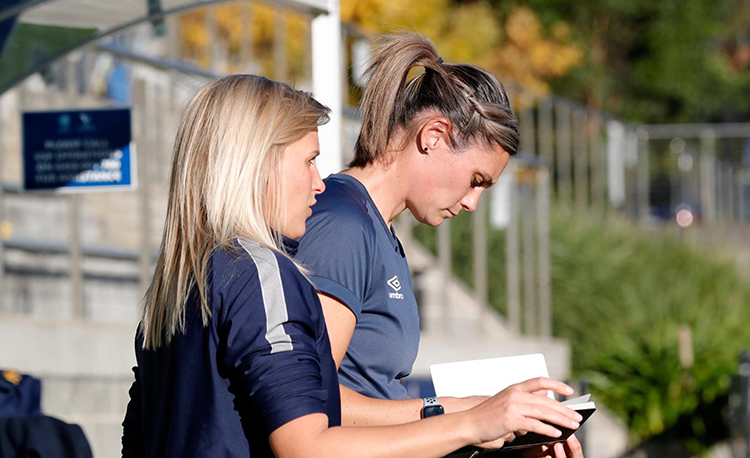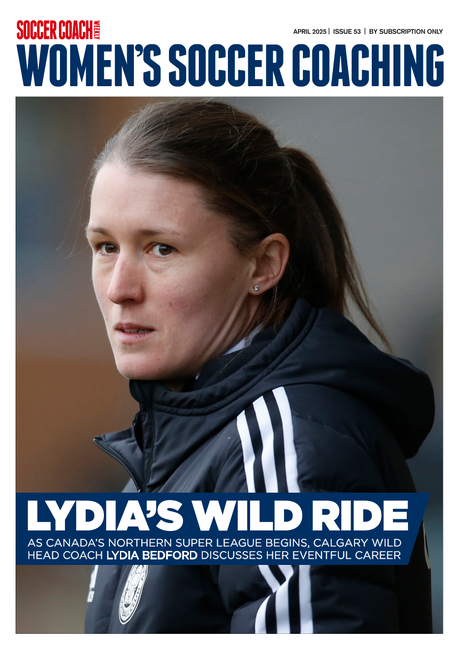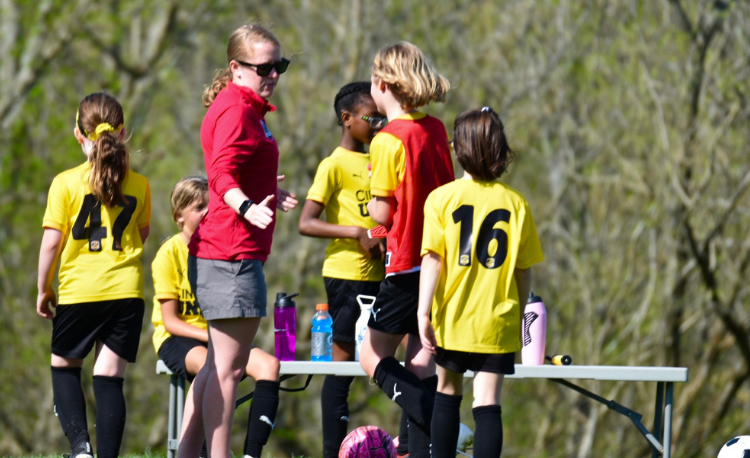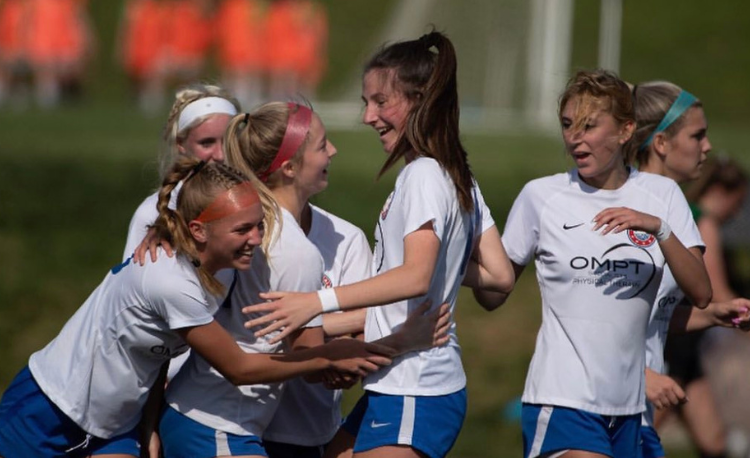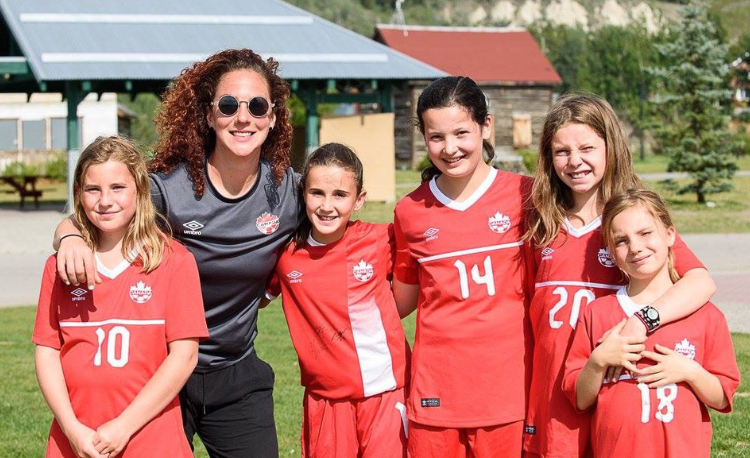You are viewing
1 of your 3 free articles
How to make the leap to being a hands-on assistant
As a new coach, Lizzie Ramsay held herself back and largely observed – but once she was given confidence to lead in sessions, she says she found her voice
My coaching journey began in 2017 when I became an assistant coach at Lindfield Football Club in Sydney.
After being involved in soccer for 12 years, I knew I wanted to make something of my passion and build a career within the game. Playing professionally was no longer an option so I thought I would give coaching a shot.
I had a good read of the game and backed myself in terms of coaching knowledge but being able to articulate ideas and communicate it to a team was where the struggle was apparent.
Not only was I an assistant coach at the club, I was a new coach. I didn’t know any players or other staff in this environment.
The players had an established relationship with the current head coach and this was something I had to build from scratch.
This was extremely daunting for me. I often hid behind the head coach when he ran sessions and would just observe and keep quiet. That was until one day when he pulled me aside and asked me to run a session the following week.
"I often hid behind the head coach and would just observe and keep quiet..."
I cannot begin to describe the fear and dread that surrounded me in the lead up. I didn’t struggle to design the session or to include coaching points - I was actually fairly confident in that sense.
What was nerve-wracking was the presenting, the 15 sets of eyes on me, my voice being the driving force of the session and the judgement from the head coach. But if I wanted to make something of this, it had to start now.
The session went really well, I was supported by the head coach, and I began to feel more and more confident. My main point in the feedback was to talk louder and be more confident.
Well, the more sessions I did, the more confident I became; I began to gain the respect of the players, who would now start confiding in me and asking me for support.
Of course, I still always went into a session with a little bit of worry, it doesn’t just disappear straight away. But the more I put myself in that situation, the easier it got.
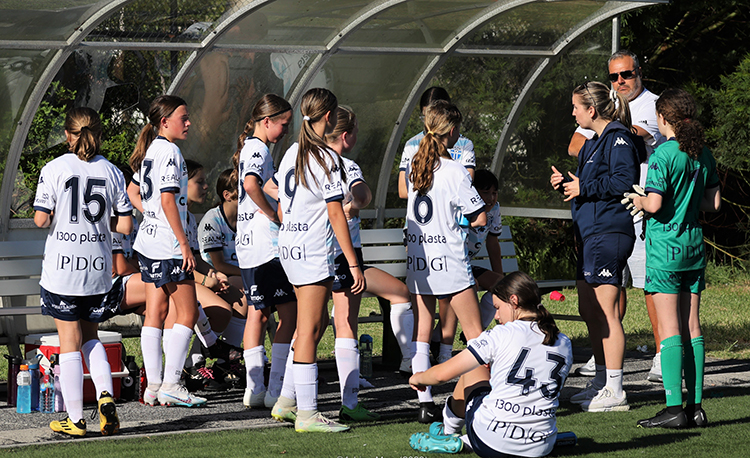
As an assistant coach, I believe you need to step up and throw yourself into it. Once you do, you’ll do it again and again.
It is fine to observe and take ideas from the head coach - that’s the whole idea of starting out as an assistant, to learn from them as a mentor.
But make sure you always provide something in every session and be heard; this can just be some supportive comments to individuals or even taking a player aside and helping them work on their technique.
If you keep quiet every session and hide, think of how the players might view you? They won’t come to you when they need help, they look for confidence in a coach to fuel their own confidence and this comes through communication and being approachable.
Simple support from other staff at the club can actually be detrimental in the development of an assistant coach.
While it is no bad thing to offer a supportive and comfortable environment, you need to challenge people to leave their comfort zone.
There isn’t much incentive for people to reach new heights of performance if they aren’t challenged. It is, however, important to gradually introduce this challenge and allow the assistant coach to be the catalyst for the steps they are taking.
Lots of positive feedback and reassurance from the head coach is so important as, more often than not, it is not the players’ responses that assistants are concerned about, it is the head coach.
Also, it is useful to enable the assistant coach to reflect on the head coach’s session – what went well? How would you progress it? What would you do differently?
Questions like these enable the assistant coach to step up and contribute their own ideas to the team and will help encourage them to offer more down the track.
"Do not be a clone of your mentor, take what you need and form your own philosophy..."
My advice to all assistant coaches is to observe and learn for a few weeks, pick out ideas and techniques that work for you and ask the questions. Once you feel confident enough in putting together your own session plan, take the leap and get yourself out there.
You do not grow when you are inside your comfort zone. It is important to remember that every single coach is different - that is what makes the coaching world so exciting and the reason it is forever developing.
Do not be a clone of your mentor - they may do certain things which you don’t agree with. Take what you need from each mentor and form your own philosophy and approach to the coaching world.
You will come across a lot of coaches, some good, some great and some which you may not agree with. Trust your values and the ideas will come.
Coach education is also very important. Take part in the courses, make connections, and build networks. You never stop learning in the coaching world.
Whether it’s a grassroots course or a pro license, coaching courses not only offer you curriculum-based education but you also meet other people on a similar path to you, and can share ideas and learn from them.
Teach these coaches something and show the confidence behind all your ideas.
At the end of the day, there are so many different approaches to coaching - just back yourself and what you can do. Others will then feed off that energy and support you.
As an assistant coach there is so much room for growth and development, but it is up to you to make that first step in getting yourself out there.
Related Files
Newsletter Sign Up
Newsletter Sign Up
Discover the simple way to become a more effective, more successful soccer coach
In a recent survey 89% of subscribers said Women's Soccer Coaching makes them more confident, 91% said Women's Soccer Coaching makes them a more effective coach and 93% said Women's Soccer Coaching makes them more inspired.
*includes 3 coaching manuals
Get Inspired
All the latest techniques and approaches
Women's Soccer Coaching offers proven and easy to use soccer drills, coaching sessions, practice plans, small-sided games, warm-ups, training tips and advice.
We've been at the cutting edge of soccer coaching since we launched Soccer Coach Weekly in 2007, creating resources for the grassroots youth coach, following best practice from around the world and insights from the professional game.
